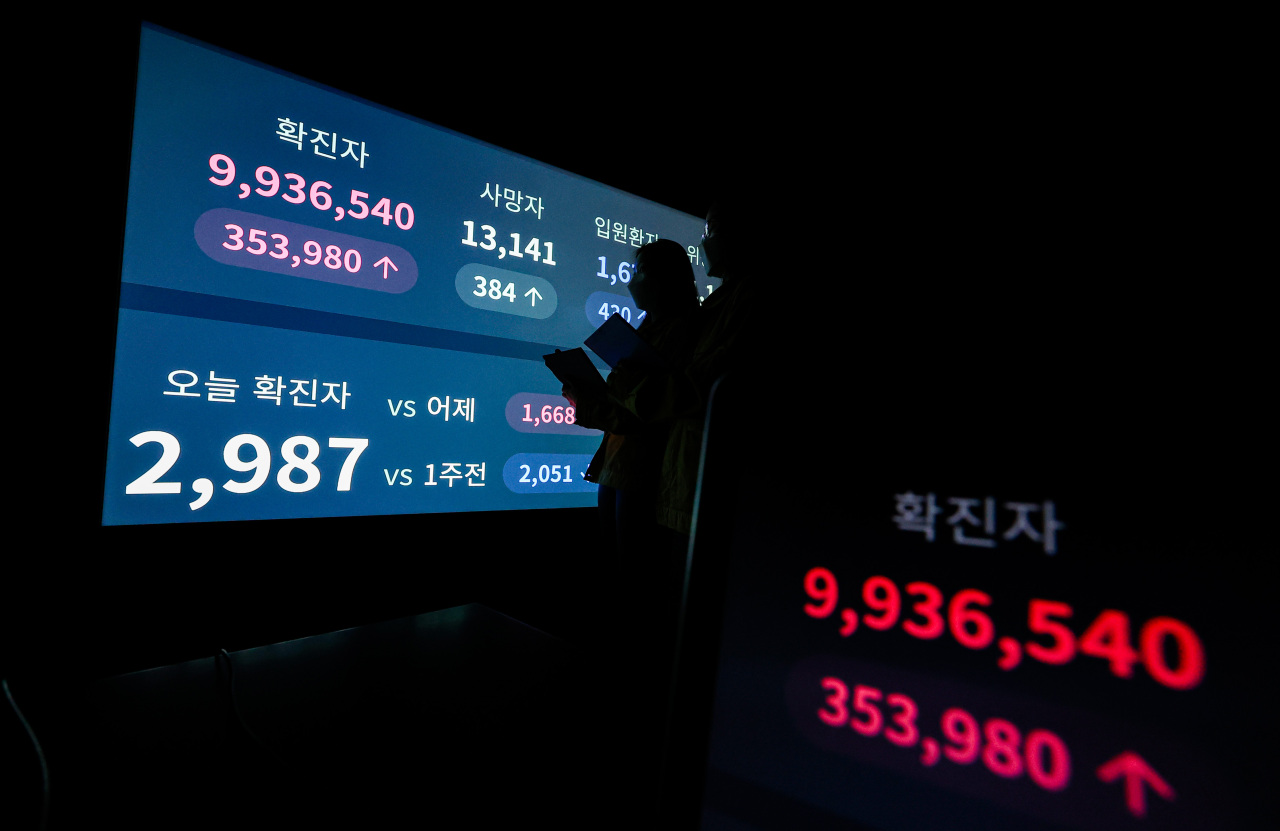 |
Screens show South Korea's total COVID-19 caseload as of midnight Monday. (Yonhap) |
South Korea’s daily COVID-19 infections jumped back up above 350,000 on Monday, the country’s health authorities said Tuesday, while the rapid spread of the stealth omicron variant cast doubt on the government’s projection that the peak of the current wave is ending.
According to the Korea Disease Control and Prevention Agency, the country added 353,980 new COVID-19 cases during the 24 hours of Monday, rising sharply from 209,169 reported a day earlier.
The total caseload came to 9,936,540, nearing the grim milestone of the 10 million mark, or some 20 percent of the country‘s total population of 51 million.
The government previously predicted that the country’s daily COVID-19 infections will peak between March 12-22, and start to decrease on March 23.
However, it is uncertain that the omicron wave will recede as the government expected. The stealth omicron variant, which is 30 percent more transmissible than the original omicron variant, is spreading quickly across the country.
During the third week of March, patients infected with the stealth omicron variant accounted for 41.4 percent, up 15.1 percent from the previous week, the country’s health authorities said.
If stealth omicron continues to spread rapidly, it can prolong the omicron wave, the health authorities said.
The government’s recent decision to ease social distancing rules can also have negative impacts on the country’s daily COVID-19 cases.
Starting on Monday, the government has allowed private gatherings of up to eight people from six, while maintaining a 11 p.m. curfew on businesses.
While the country’s daily COVID-19 cases recently showed signs of decline since the figure reached 621,317 on Wednesday last week, the number of COVID-19 related deaths and severe cases continued to stay high.
On Monday, the country added 384 deaths, the second highest death toll following 429 deaths reported on Thursday last week. The death toll reached 13,141, and the fatality rate stood at 0.13 percent.
The number of critically ill patients came to 1,104 as of midnight Monday, remaining over 1,000 for some two weeks. The number of severe cases was down 26 from the previous day, but it was mainly as the number of deaths from COVID-19 increased the same day.
The hospital bed occupancy rate for critically ill patients reached 67.8 percent during the same period, down 1.2 percent from the previous day’s 69 percent.
The number of people who are under at-home treatment came to 1,821,962 on Tuesday, down 172,024 from 1,993,986 a day earlier.
By Shim Woo-hyun (
ws@heraldcorp.com)








